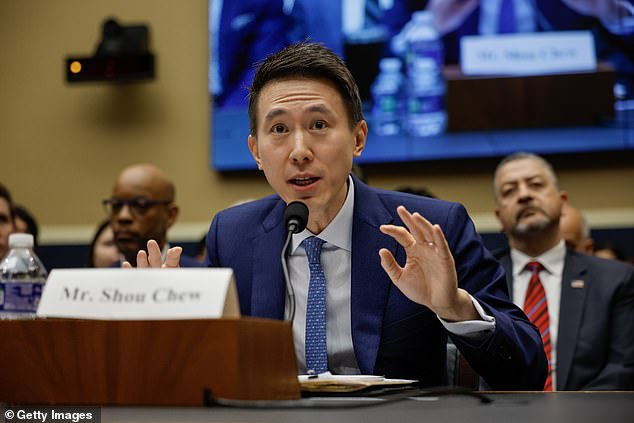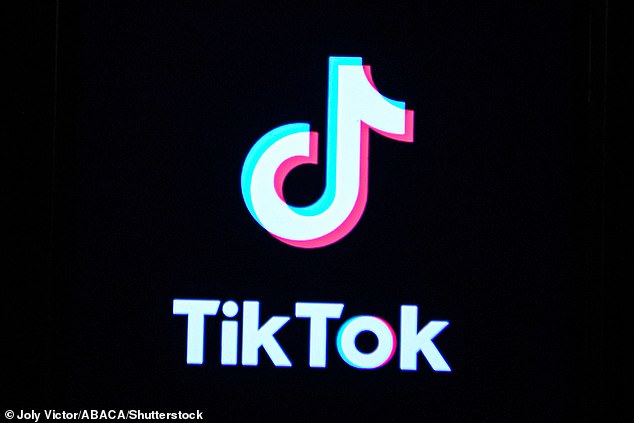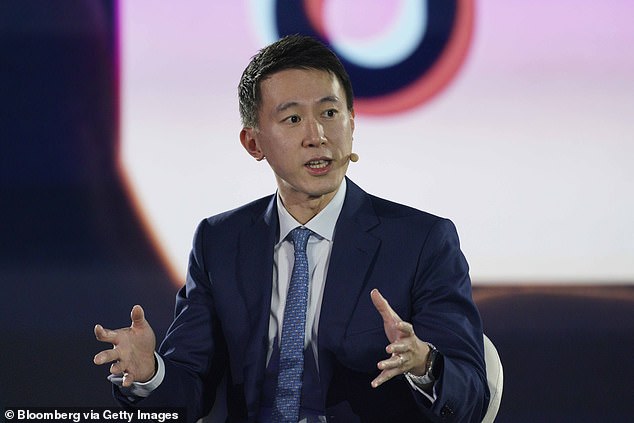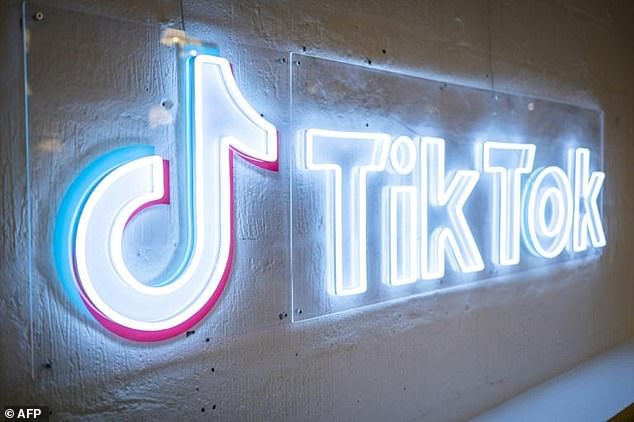TikTok CEO Shou Zi Chew issued a response – in the form of a TikTok clip – after the US House of Representatives voted to pass legislation that could ban the platform in the US.
The House voted Wednesday, 352-65, with representatives on both sides of the aisle joining forces to pass the bill. It now goes to the Senate, where it faces an uncertain future.
Politicians have long expressed concern about TikTok’s parent company, ByteDance, which is headquartered in Beijing and is suspected of having links to the Chinese Communist Party.
President Joe Biden has pledged to sign the bill, which would force ByteDance to sell TikTok within six months or be banned from app stores and web hosting services.
Chew, 41, released a video on the official TikTok account of X, formerly Twitter, on Wednesday evening. The CEO introduced himself using his first name before launching into his remarks.
“Just wanted to share some thoughts with our US users about the disappointing vote in the House of Representatives,” he said. ‘There has been a lot of misinformation and I hope to clear some things up.’

TikTok CEO Shou Zi Chew released a video response on Wednesday following a vote in the US House of Representatives on a bill that would ban the platform in the US


Politicians have repeatedly raised concerns about TikTok’s parent company, ByteDance, which is headquartered in Beijing and is suspected of having links to the Chinese Communist Party
He thanked the platform’s 1.7 billion strong community for ‘making (their) voices heard’. By March 2023, at least 150 million users were based in the United States, although that number is estimated to be around 170 million now.
‘Over the last few years we have invested in keeping your data secure and our platform free from outside manipulation. We have committed to that and continue to do so,’ Shou continued.
Whistleblowers at the company, notably former ByteDance employee Yintao Yu, have previously sounded the alarm about lax data protection.
Yu, who served as head of engineering for ByteDance’s US operations between August 2017 and November 2018, sued the company in May 2023.
In the complaint, he claimed that a group of CCP members nicknamed ‘The Committee’ was installed in offices in Beijing and could see all data collected by the company, including data from the United States.
In 2022, TikTok announced Project Texas, an unprecedented initiative to store all US user data on servers in the country.
In June of that year, the platform reported that all US user traffic was being redirected to cloud infrastructure in the US.
TikTok also announced that it would also delete ‘historically protected user data’ in data centers in both Virginia and Singapore.


Chew, 41, said TikTok was committed to keeping user data ‘secure’ and the platform ‘free from outside manipulation’


The CEO encouraged the platform’s 170 million US users to ‘continue to share your voice’, including with their senators
“This legislation, if signed into law, will lead to a ban on TikTok in the United States,” Chew said in Wednesday’s message. “Even the bill’s sponsors admit that is their goal.”
He added that the bill ‘gives more power to a handful of other social media companies’, although he did not mention them by name.
“It will also take billions of dollars out of the pockets of creators and small businesses,” Chew continued. ‘It will put more than 300,000 American jobs at risk and it will take away your TikTok.’
Addressing the users himself, he continued: ‘We will not stop advocating for you and we will continue to do everything we can, including exercising our legal rights, to protect this amazing platform we have built together with you.’
He ended the video by encouraging users to continue sharing their voice with those around them, including their senators.
If the bill were to pass the Senate and be signed into law, TikTok would lose a significant portion of its advertising market.
A 2022 study by the Harvard TH Chan School of Public Health found that the app generated $2 billion in ad revenue from users aged 13-17 in the US alone.

